
Howard Robard Hughes Jr. was an American aerospace engineer, business magnate, film producer, investor, philanthropist and pilot. He was best known during his lifetime as one of the richest and most influential people in the world. He first became prominent as a film producer, and then as an important figure in the aviation industry. Later in life, he became known for his eccentric behavior and reclusive lifestyle—oddities that were caused in part by his worsening obsessive-compulsive disorder (OCD), chronic pain from a near-fatal plane crash, and increasing deafness.
The following is an overview of 1933 in film, including significant events, a list of films released, and notable births and deaths.
The following is an overview of 1932 in film, including significant events, a list of films released and notable births and deaths.
This is an overview of 1923 in film, including significant events, a list of films released and notable births and deaths.

Dennis O'Keefe was an American actor and screenwriter.
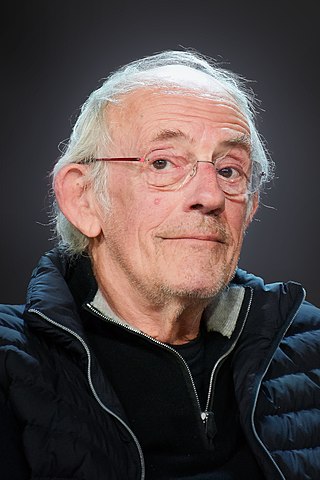
Christopher Allen Lloyd is an American actor. He has appeared in many theater productions, films, and on television since the 1960s. He is known for portraying Dr. Emmett "Doc" Brown in the Back to the Future trilogy (1985–1990) and Jim Ignatowski in the comedy series Taxi (1978–1983), for which he won two Emmy Awards.

Jean Harlow was an American actress. Known for her portrayal of "bad girl" characters, she was the leading sex symbol of the early 1930s and one of the defining figures of the pre-Code era of American cinema. Often nicknamed the "Blonde Bombshell" and the "Platinum Blonde", Harlow was popular for her "Laughing Vamp" screen persona. Harlow was in the film industry for only nine years, but she became one of Hollywood's biggest movie stars, whose image in the public eye has endured. In 1999, the American Film Institute ranked Harlow number 22 on its greatest female screen legends list.
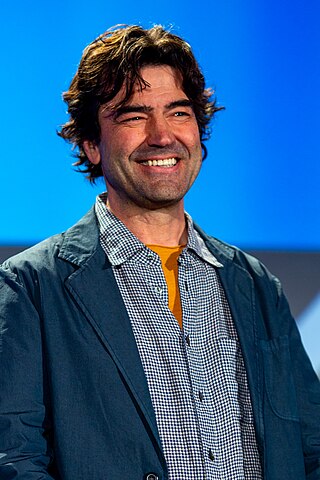
Ronald Joseph Livingston is an American actor. He is best known for playing Peter Gibbons in Office Space (1999) and Captain Lewis Nixon III in the miniseries Band of Brothers (2001). Livingston's other roles include the films Swingers (1996), Adaptation (2002), The Conjuring (2013), James White (2015), Tully (2018); and the television series Loudermilk (2017–2020), and Boardwalk Empire (2013).
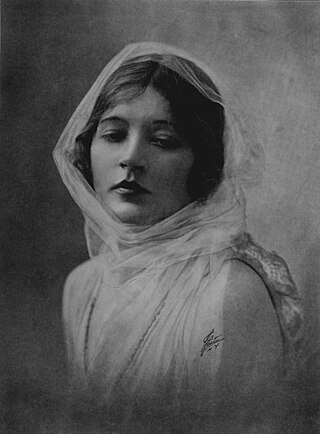
Mae Murray was an American actress, dancer, film producer, and screenwriter. Murray rose to fame during the silent film era and was known as "The Girl with the Bee-Stung Lips" and "The Gardenia of the Screen".

The Commitments (1987) is a novel by Irish writer Roddy Doyle. The first episode in The Barrytown Trilogy, it is about a group of unemployed young people in the north side of Dublin, Ireland, who start a soul band.
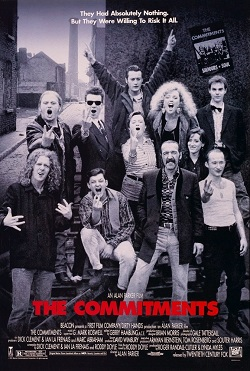
The Commitments is a 1991 musical comedy-drama film based on the 1987 novel of the same name by Roddy Doyle. It was directed by Alan Parker from a screenplay written by Doyle, Dick Clement and Ian La Frenais. Set in the Northside of Dublin, the film tells the story of Jimmy Rabbitte, a young music fanatic who assembles a group of working-class youths to form a soul band named "The Commitments". The film is the first in a series known as The Barrytown Trilogy, followed by The Snapper (1993) and The Van (1996).
"Frankie and Johnny" is a murder ballad, a traditional American popular song. It tells the story of a woman, Frankie, who finds her man Johnny making love to another woman and shoots him dead. Frankie is then arrested; in some versions of the song she is also executed.

William Collier Jr. was an American stage performer, producer, and a film actor who in the silent and sound eras was cast in no fewer than 89 motion pictures.

The Front Page is a 1931 American pre-Code screwball black comedy film directed by Lewis Milestone and starring Adolphe Menjou and Pat O'Brien. Based on the 1928 Broadway play of the same name by Ben Hecht and Charles MacArthur, the film was produced by Howard Hughes, written by Bartlett Cormack and Charles Lederer, and distributed by United Artists. The supporting cast includes Mary Brian, Edward Everett Horton, Walter Catlett, George E. Stone, Mae Clarke, Slim Summerville, and Matt Moore. At the 4th Academy Awards, the film was nominated for Best Picture, Milestone for Best Director, and Menjou for Best Actor.
The International Sweethearts of Rhythm was an American jazz ensemble, believed to be the first racially-integrated all-female band in the United States.

Anna Mae Winburn(néeDarden; August 13, 1913 – September 30, 1999) was an American vocalist and jazz bandleader who flourished beginning in the mid-1930s. An African-American, she is best known for having directed the International Sweethearts of Rhythm, an all-female big band that was perhaps one of the few – and one of the most – racially integrated dance-bands of the swing era. In 1944, the band was named as the country's favorite all-female orchestra in a DownBeat magazine poll.

Virtue is a 1932 American Pre-Code romantic drama film directed by Edward Buzzell and starring Carole Lombard, Pat O'Brien and Shirley Grey. It was produced and distributed by Columbia Pictures.
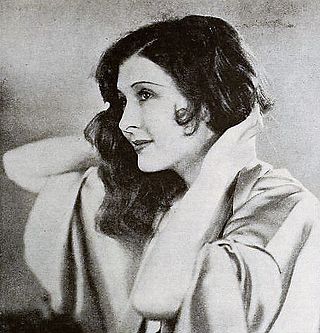
Marion Helen Schilling was an American stage and film actress. She was one of the most famous "B" leading ladies of the 1930s.
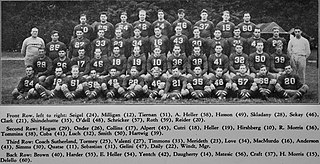
The 1931 Pittsburgh Panthers football team, coached by Jock Sutherland, represented the University of Pittsburgh in the 1931 college football season. The Panthers finished the regular season with eight wins and a single loss at Notre Dame and were considered the champions of the East. Parke H. Davis, recognized as a "major selector" in the official NCAA football records book, named Pitt as one of that season's co-national champions. The team is also recognized as national champion in 1931 by College Football Data Warehouse and according to a Sports Illustrated study that has served as the historical basis of the university's historical national championship claims since its original publication.
Tongues of Scandal is a 1927 American silent drama film directed by Roy Clements and starring Mae Busch, William Desmond, and Ray Hallor.














